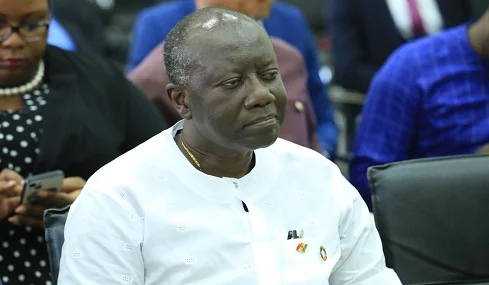The family of Ken Ofori-Atta, former Finance Minister of Ghana, has accused Special Prosecutor Kissi Agyebeng of abusing administrative powers in the controversial Interpol Red Notice that labels Mr. Ofori-Atta as a wanted individual for allegedly using public office for private profit.
In an official press statement released on Monday, June 9, 2025, the Ofori-Atta family demanded the immediate removal of the Interpol Red Notice, asserting that the notice was unjustly issued.
They revealed that formal petitions have been submitted to the National Central Bureau and the Commission for the Control of Interpol’s Files (CCF) requesting the deletion of Mr. Ofori-Atta’s name from the international wanted list.
The family alleged that the Office of the Special Prosecutor (OSP) manipulated evidence and bypassed proper legal procedures to obtain an arrest warrant dated February 11, 2025, on charges of corruption and abuse of office.
The statement emphasised that no official charge has been filed beyond what is stated in the arrest warrant, questioning the legitimacy of the legal process.
“There is no charge stated against Mr. Ofori-Atta apart from what is on the arrest warrant,” the statement noted, adding that “the court records are not clear as to how the OSP secured the arrest warrant without a filed affidavit.”
The family further criticised the OSP’s media strategy, condemning public announcements branding Mr. Ofori-Atta as a fugitive. They described the prosecutor’s conduct as unlawful and equivalent to a “public lynching.”
Additionally, the statement highlighted the Special Prosecutor’s alleged disregard for a scheduled Human Rights Court hearing on June 18, as well as the rejection of a proposed virtual interview to accommodate Mr. Ofori-Atta’s medical condition.
“Mr. Ofori-Atta does not run from justice but always meets it head-on and successfully defends himself,” the family declared, citing his past cooperation with CHRAJ, Parliament, and other judicial bodies.
This unfolding case continues to draw national and international attention as it raises serious concerns about due process, legal overreach, and the politicisation of anti-corruption efforts in Ghana.





















